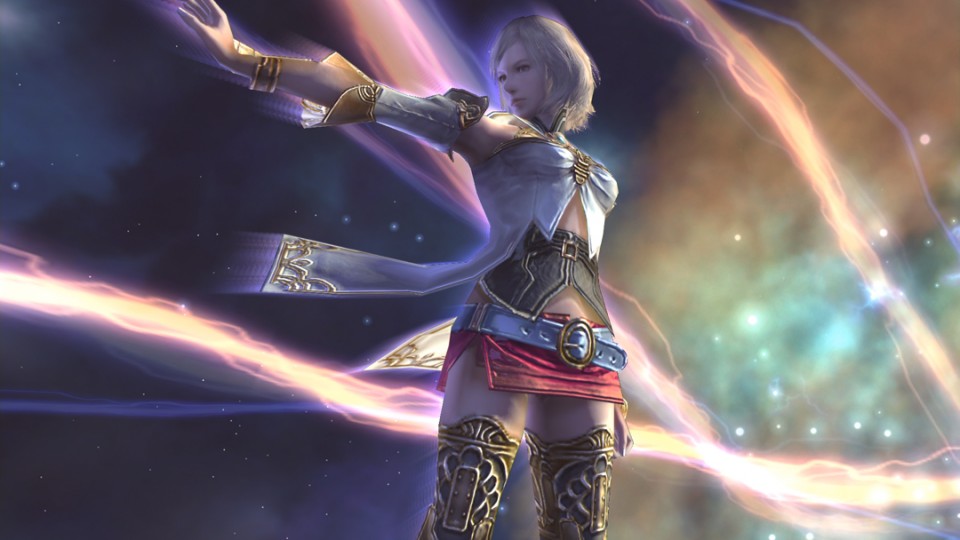When a franchise lasts long enough, it adopts a personality. Keystone elements drive development, and become fan focal points. These eventually become the bedrock for entire communities. But every now and then, there’s an entry in a franchise that proves divisive – either because of its quality, or direction. Worst-case scenario, these games are spurned by fans and critics, relegated to flippant remarks on message boards. Best-case, they’re remembered for being brave or quirky
2006’s Final Fantasy XII was one such black sheep. Despite being a critical success, its release came and went. Packed with a plot of political intrigue, and a unique combat system, the game hit the PlayStation 2 at the end of its lifespan. Next-gen gaming was already in the living room with the Xbox 360, and developer Square Enix had their sights set on HD with the
If you never got your hands on the original release, then Final Fantasy XII: The Zodiac Age is a perfect point to jump in. While parts of the game’s structure haven’t aged well, the cleaned-up visuals and quality-of-life tweaks help smooth these over. This is in addition to an expanded Job system, which only ever saw the light of day in Japan.
Final Fantasy XII tells the story of Vaan, a war orphan and thief, and the worst main character in the world. Thankfully, the supporting cast make-up for the whiny teen’s shortcomings, with each one given enough screen-time to grow. Comparisons to Star Wars are trite, but they’re still accurate; you have your puckish rogue pilot and his sidekick, a princess leading a resistance against an evil empire, and a disenfranchised youth dreaming of bigger things.

But amongst those surface-level similarities, the developers manage to carve out their own world, filled with societies and groups – each with their own unique cultures. More than that though, Final Fantasy XII also looks at the effects colonisation has on a country’s identity. It’s subtle, and quite often you’ll have to dig for it, but it’s there.
There’s a real commitment to the worldbuilding too, even if it’s to the detriment of mechanical and narrative clarity. Different cultures have diverse dialects and lilts to their speech, while some speak in a metred verse. Victorian-era prose is used to detail monsters in your bestiary. It’s a boiling pot, and elegantly parallels the fractured nature of the world you inhabit.
Inside that world you’ll be swinging a lot of swords. Or axes. Or spells. Final Fantasy XII’s combat is all about customisation, and is a welcome departure from the series’ more static roots. Taking cues from MMOs, fights take place out in open environments with attacks unfolding in real-time. You’ll be able to pause the action and queue up commands across your party members, but the game’s rewarding Gambit system automates most of this.

Gambits are a series of programmable that you can apply to your party; targeting enemies with spells they’re weak to, or casting healing magic on teammates that fall beneath set percentages. The system is incredibly deep, allowing you to apply a hierarchical structure to them too. Seeing your party completely roll through a dungeon because you’ve fine-tuned their Gambits is satisfying. Some boss encounters and tougher enemies are a little more complex than what the system permits, so you’ll occasionally have to take the reins back and control things manually – meaning you can’t grow complacent.
Like any good Final Fantasy, there’s also a bevy of side-quests to undertake. This is where the game shows its age though, with most of these boiling down to carting items between outposts and samey NPCs. Thankfully, the generous collection of unique monster hunts are as good as ever, and are made even better through the new Speed Mode.
Speed Mode allows you to crank up the speed of all actions in the game, to either x2 or x4 that of normal. Because most hunts involve you traversing large zones and areas you’ve explored before, this is a godsend. Each hunt presents a difficult combat encounter for you to solve, and rewards you with more gear.
Improvements aren’t just quality-of-life though. The game has seen a visual overhaul, with completely remastered optional audio tracks too. The Zodiac Job system has also made its way over from 2007’s Japan-only release. Players can customise their characters with a little more direction, by choosing specific roles – spellcasters, healers, thieves, tanks, and the like. If you’ve played any RPG then the choices are easy to make. If you’re a first-timer however, it could be quite intimidating – especially as it’s possible to select a Job that doesn’t line-up with a character’s stat growth. This is compounded further, as selecting a job locks that decision permanently.

Final Fantasy XII: The Zodiac Age is the definitive version of 2006’s black sheep RPG. New quality-of-life features elevate the game’s strongest elements, while visual and audio improvements make it more palatable. If you missed Final Fantasy XII the first time, don’t sleep on this.